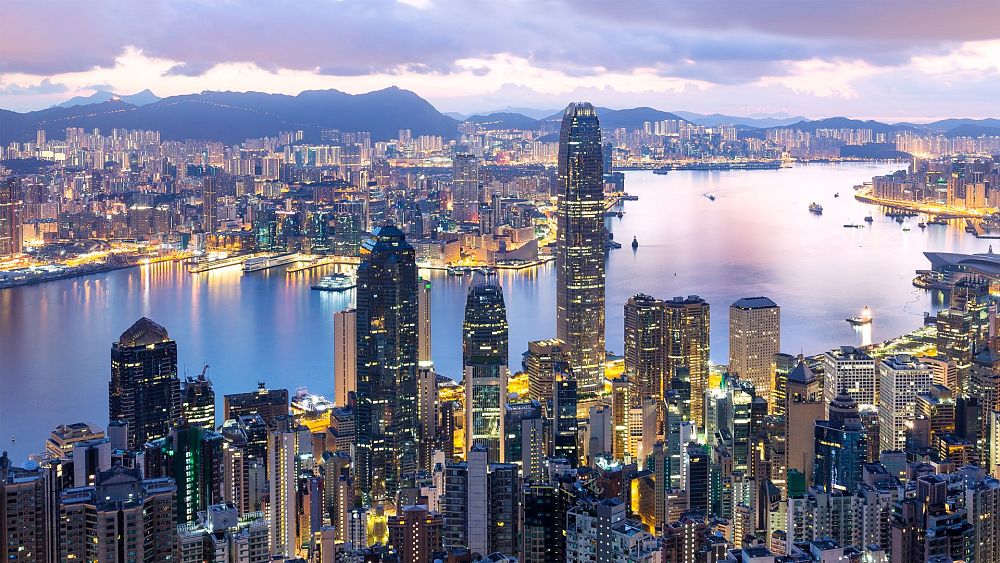China will lift its quarantine requirement for inbound travellers starting from 8 January. It will also resume issuing visas for residents to travel overseas.
Hong Kong has scrapped on-arrival COVID-19 restrictions for travellers and ditched its virus tracing app.
As of 14 December, visitors to the city are able to visit restaurants, gyms and bars as soon as they arrive. Previously, they had been subject to a three-day post-arrival ban from such venues.
The easing came days after mainland China loosened its harsh COVID zero policy and slightly lifted its restrictions on international travellers.
What are Hong Kong's new travel rules?
In December, the city authorities announced the removal of the 'amber code' measure previously applied to international arrivals.
Arriving people now have no movement restrictions. Mandatory on-arrival PCR testing will also be dropped as of Thursday 29 December.
Previously, arrivals were required to do a PCR COVID test on arrival and again two days after arriving.
Hong Kong's government has also ditched a mandatory COVID-19 check-in app. Previously, residents and visitors alike had to use the app to check in at venues from gyms to offices.
Hong Kong leader John Lee said that international visitors no longer posed a huge risk.
“The infection risk from imported cases is lower than the risk from local infections,” he said.
The city scrapped mandatory hotel quarantine in September.
Mask wearing rules remain in Hong Kong.
What are China's latest COVID-19 travel rules?
Mainland China still has some of the strictest COVID rules in the world. However, the government has recently relaxed its pandemic restrictions after nationwide protests against its harsh COVID zero policy.
As of earlier this month, people with COVID who have mild or no symptoms can now isolate at home, rather than in state facilities.
Despite the accelerated opening-up, China's borders remain shut to most foreign nationals.
It is still difficult to travel to China - but flight bans, testing, and quarantine rules were eased last month.
Passengers on inbound flights to the Asian country will now need to show only one negative PCR test taken within 48 hours before boarding, according to the note released by China’s National Health Commission. Previously two negative PCR tests were required.
International arrivals now need to quarantine for eight days instead of ten, while officials will no longer record secondary contacts for tracing - allowing many to avoid quarantine.
In the November announcement, the controversial ‘circuit breaker’ mechanism was also ended.
This much-criticised rule meant that all international flights to China could be banned for one to two weeks when a 'high' number of infected passengers were discovered on arrival.
It often led to flights being cancelled at the last minute, creating significant disruption for travellers.
Many often had to wait several weeks or even months before finding seats on a flight to China.
What are COVID cases like in China right now?
The new quarantine rules changes come amid a COVID surge in China.
COVID cases have risen to their highest level in months - around 30,000 per day.
China, a country of 1.4 billion people, reported three new COVID-related deaths for Tuesday 27 December, up from one for Monday. However, these numbers are inconsistent with what funeral parlours are reporting, as well as with the experience of much less populous countries after they re-opened.
The "lack of transparent data" has led some countries, including the US, to consider imposing new travel restrictions on people visiting from China.
The country is one of the last in the world to abandon COVID zero policy. Beijing’s zero-COVID policy saved lives, with China being home to 18 per cent of the world’s population, but it has hammered the economy and heavily restricted citizens’ lives.
Nationwide protests started after 10 people - who were locked in a building due to anti COVID measures - died in a fire in Xinjiang last month. Some of the victims were sealed in their flats and the building’s fire exits were locked.
China's authorities have insisted that the reopening is unrelated to the protests.


